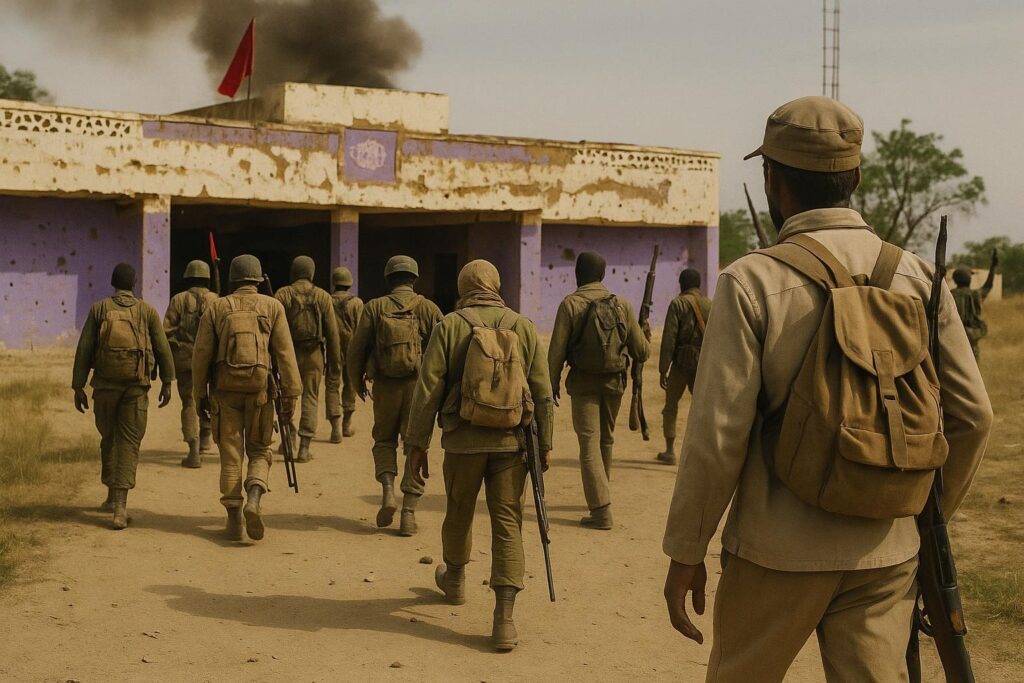El-Fasher’s Fall Spurs Online Outrage
On 26 October 2023, El-Fasher fell to General Mohamed Hamdan Dagalo’s Rapid Support Forces. The United Nations estimates at least 36,000 residents fled within days. Sudanese users and their diaspora shifted immediate anger online, launching a sweeping call to shun Emirati airlines, malls and investment platforms.
Within 72 hours, the Arabic hashtag translating to ‘Boycott Emirates’ amassed tens of millions of views on TikTok, X and Instagram. Clips spliced Dubai’s gilded skylines with footage of charred villages, turning smartphones into a new battleground far removed from Darfur’s deserts.
Tracing Gold and Guns Between Darfur and Dubai
Investigations since 2019 have mapped clandestine routes linking Darfur mines, Port Sudan docks and Jebel Ali’s free zone. Diplomats say Sudanese artisanal gold refined in Dubai underpins RSF logistics, even as Abu Dhabi denies direct military involvement.
Activists argue that every bullion bar shipped through Emirati entities finances militias accused by UN monitors of mass killings. For them, boycotting Emirates Airlines becomes a moral embargo on conflict gold, evoking past drives against blood diamonds.
Diplomatic Balancing Acts Across Africa
Gulf capital powers port, energy and tech projects from Nairobi to Lagos. Officials worry that a populist backlash against the UAE could unsettle financing for corridors like Lamu-South Sudan-Ethiopia or renewable parks in the Sahel.
Khartoum’s army-aligned foreign ministry simultaneously petitions Gulf states for mediation yet condemns alleged RSF backers. The contradiction illustrates how digital anger constrains diplomats who must court the same investors that domestic opinion now vilifies.
UN Warning Amplifies Social Momentum
A closed-door UN Security Council briefing cited credible reports of mass executions in El-Fasher, language unusually stark for Sudan’s crisis. Influencers repackaged the statement into viral slideshows, extending Turtle Bay’s echo into dorm rooms from Cairo to Minneapolis.
Brand UAE Faces Intangible Risks
Dubai hosted over 14 million tourists last year and markets itself as a flawless hub. While Sudanese arrivals form a tiny slice of that figure, experts warn that reputational dents can complicate sovereign-wealth negotiations, sports sponsorships and Expo-style showcases built on soft power.
Risk analysts recall how a Twitter storm once forced US basketball teams to reassess China deals. Similar optics, they say, could prod Abu Dhabi to press the RSF toward compromise or, conversely, to entrench covert support.
Stories of Flight and Defiance
Community radios in Kadugli relay accounts of families trekking overnight to safety after relentless gunfire. A former gold trader told one programme he once viewed Dubai as ‘the dream market’ but now refuses to wire remittances through Emirati channels.
Such testimonies, broadcast in livestreams, personalise the boycott and nurture a sense of agency among displaced civilians otherwise eclipsed by high-level diplomacy.
Will Online Fury Shape Policy?
Analysts are watching three signals: possible Emirati audits of Sudanese gold, alterations in RSF supply chains via Chad, and UN debates on an arms embargo. A shift in any metric would indicate that viral anger is translating into concrete leverage.
For civilians trapped between the army and the RSF, the smartphone may be the last tool left to influence generals, investors and diplomats. Whether that tool sways policy remains the open question defining Sudan’s digital battlefield.


